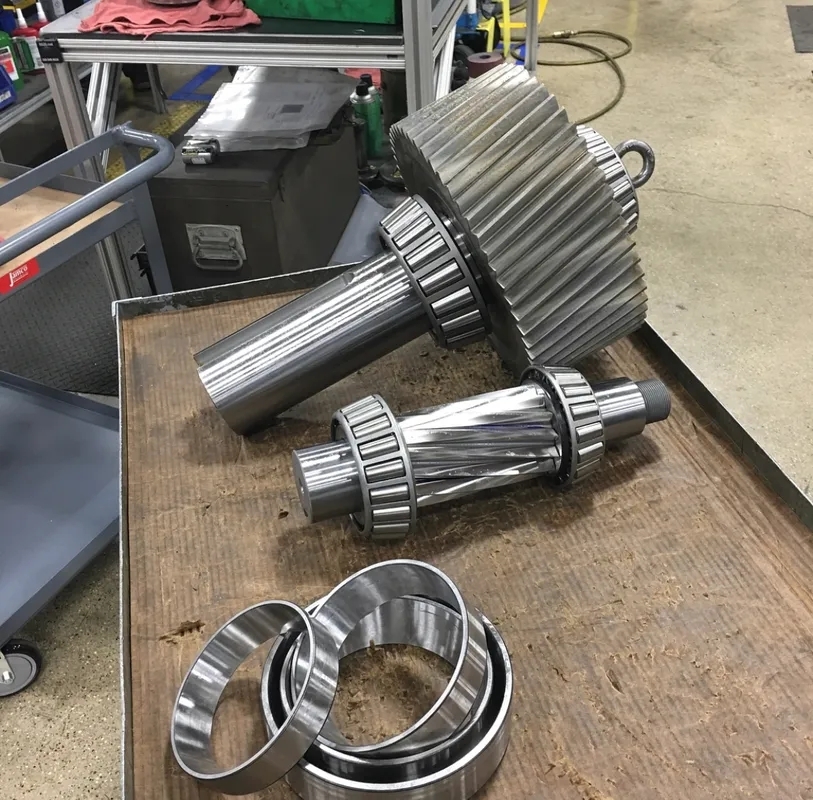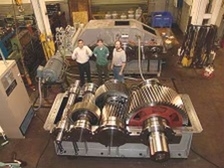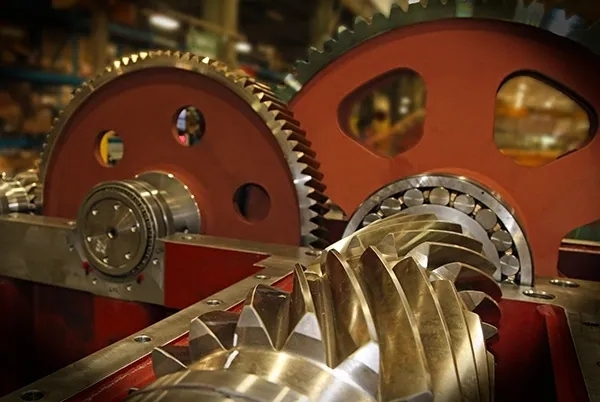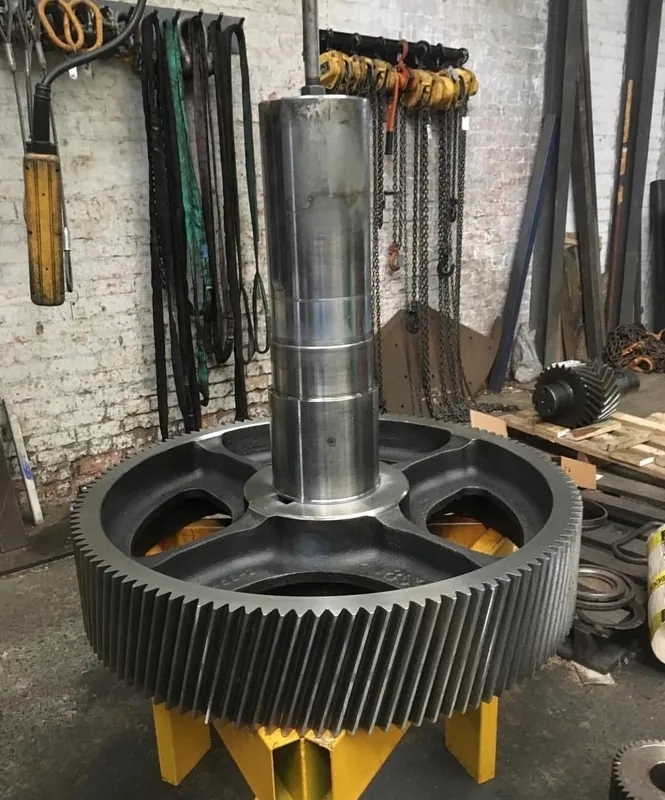

When troubleshooting a robotic arm servo motor that is not responding to commands, the first step is to check the power supply and connections to ensure everything is properly connected. Next, inspect the servo motor for any physical damage or obstructions that may be preventing it from moving. It is also important to verify that the control signals being sent to the servo motor are correct and within the specified range. If all else fails, testing the servo motor with a different controller can help determine if the issue lies with the motor or the control system.
If a servo motor in a robotic arm is making unusual noises during operation, it is crucial to stop the motor immediately to prevent further damage. The next step is to inspect the motor for any signs of wear or damage, such as loose screws or broken gears. Lubrication of the moving parts may also help reduce noise and improve performance. If the noise persists, it may be necessary to replace the servo motor to prevent any potential malfunctions or failures during operation.
Tompkins County poised for manufacturing boom with Menlo Micro and Micron investments “Menlo Micro announced a significant investment of over $50 million to establish a fabrication facility in Lansing, near Ithaca, New York, signaling a major boost for the local manufacturing workforce.” Read more Plug Power wins $75 million grant from DOE “The Latham hydrogen … NYS Manufacturing and Tech News 3.11.24 Read More »
Posted by on 2024-03-15
We continue our blog series on the great work of our New York State assets in Advanced Materials across the state. This week, we feature the work of Rensselaer Polytechnic Institute (RPI) in Troy, NY, and their work on next generation building technology with an aim to decarbonize the built environment. This includes working with … Advanced Materials Strengths and Assets in NYS: Focus on Rensselaer Polytechnic Institute Read More »
Posted by on 2024-02-28
Embark on an enlightening exploration of New York’s economic transformation with special guest Alyson Slack from MRB Group, as we uncover the past and present of the state’s manufacturing sector. Together with FuzeHub’s Steve Melito we chart the course from a robust production history to a burgeoning service-oriented economy, all while acknowledging manufacturing’s lasting contributions … Podcast: Building Better Economies Read More »
Posted by on 2024-03-18
New $25M beauty manufacturing and innovation hub for Black- and women-owned businesses coming to Brooklyn Navy Yard “The Brooklyn Navy Yard is set to be home to a new $25 million state-of-the-art manufacturing, incubator, and accelerator facility focused on helping Black- and women-owned health and beauty businesses launch and grow in New York City.” Read … NYS Manufacturing and Tech News 3.4.24 Read More »
Posted by on 2024-03-08
In our third feature in our New York State Assets blog series on Advanced Materials, we focus on the groundbreaking work at the University at Buffalo. Their Department of Materials Design and Innovation focuses on accelerating lab discoveries into practical engineering applications. They are pioneering new approaches in material science education and research, leveraging technologies … Advanced Materials Strengths and Assets in NYS: Focus on University at Buffalo Read More »
Posted by on 2024-03-06
When diagnosing and fixing a servo motor in a robotic arm that is overheating, the first step is to check for any obstructions or debris that may be blocking the motor's ventilation. It is also important to ensure that the motor is not being overloaded or operating beyond its specified limits. Adding additional cooling mechanisms, such as fans or heat sinks, can help dissipate heat and prevent overheating. If the issue persists, it may be necessary to replace the servo motor with a more robust model that can handle the workload without overheating.

Common reasons for a robotic arm servo motor to suddenly stop working include power supply issues, damaged wiring, or internal component failure. Checking the power supply and connections, as well as inspecting the motor for any physical damage, can help identify the root cause of the problem. It is also important to ensure that the motor is not being overloaded or operating beyond its specified limits, as this can lead to premature failure. Replacing any faulty components or the entire servo motor may be necessary to restore functionality to the robotic arm.
To determine if a servo motor in a robotic arm is experiencing mechanical issues versus electrical issues, it is important to conduct a thorough inspection of the motor and its components. Mechanical issues may include worn gears, loose screws, or physical damage to the motor casing. Electrical issues, on the other hand, may involve faulty wiring, damaged connectors, or issues with the control signals being sent to the motor. Testing the motor with a different controller can help isolate whether the issue lies with the motor itself or the electrical system controlling it.

To prevent servo motor burnout in a robotic arm system, it is important to ensure that the motor is not being overloaded or operating beyond its specified limits. Regular maintenance, such as lubricating moving parts and cleaning debris from the motor, can help prevent excessive wear and tear. Monitoring the motor's temperature during operation and adding additional cooling mechanisms, if necessary, can also help prevent overheating and potential burnout. Using a servo motor that is appropriately sized and rated for the workload can help prolong its lifespan and prevent premature failure.
Calibrating a servo motor in a robotic arm is essential to ensure optimal performance and accuracy. Start by setting the motor to its neutral position and adjusting the control signals to center the motor's movement. Fine-tune the calibration settings to achieve the desired range of motion and responsiveness. Testing the motor under different loads and operating conditions can help verify that it is properly calibrated. Regularly checking and recalibrating the servo motor as needed can help maintain its performance and prevent any issues during operation.

The company provides comprehensive on-site repair services for a wide range of heavy machinery, including excavators, bulldozers, cranes, and loaders. Our team of experienced technicians is equipped to handle repairs, maintenance, and troubleshooting for various types of heavy equipment. With specialized knowledge in hydraulic systems, engines, and electrical components, our technicians can efficiently diagnose and address any issues that may arise. Additionally, we offer preventative maintenance services to ensure that your machinery operates at peak performance and minimizes downtime. Whether it's a minor repair or a major overhaul, our on-site repair services are designed to keep your heavy machinery running smoothly and efficiently.
Yes, our company provides specialized repair services for industrial shredders. Our team of experienced technicians is trained to handle a wide range of issues that may arise with industrial shredders, including motor malfunctions, blade replacements, jammed feed mechanisms, and electrical problems. We use advanced diagnostic tools and high-quality replacement parts to ensure that your industrial shredder is restored to optimal working condition. Additionally, we offer preventative maintenance services to help prolong the lifespan of your equipment and minimize the risk of future breakdowns. Trust our experts to provide efficient and reliable repairs for your industrial shredder.
Yes, the technicians at the CNC machining center repair facility are highly skilled in repairing specific models of CNC machining centers. They have expertise in working with various brands and models, including Haas, Mazak, Okuma, and Fanuc. These technicians are trained to diagnose and troubleshoot issues with precision, ensuring that the CNC machining centers are restored to optimal working condition. Additionally, they have access to specialized tools and equipment to efficiently repair any mechanical, electrical, or software-related problems that may arise. Whether it's a spindle issue, axis alignment problem, or control system malfunction, the technicians at the CNC machining center repair facility have the knowledge and experience to address the specific needs of each model.
Industrial chiller maintenance services typically include tasks such as regular inspections, cleaning of condenser coils, checking refrigerant levels, monitoring for leaks, adjusting controls, calibrating sensors, lubricating moving parts, replacing worn-out components, testing safety features, and conducting performance evaluations. Additionally, preventive maintenance measures may involve analyzing system efficiency, optimizing energy consumption, implementing predictive maintenance strategies, and ensuring compliance with industry regulations. Proper maintenance of industrial chillers is crucial to prevent breakdowns, extend equipment lifespan, improve operational efficiency, and minimize downtime. Specialized technicians with expertise in refrigeration systems are often employed to perform these maintenance tasks to ensure optimal performance and reliability of industrial chillers.
Specialized robotics used in manufacturing processes require a high level of expertise to service effectively. Technicians must be well-versed in programming, maintenance, troubleshooting, and repair of industrial robots, automated machinery, and robotic systems. They need to have a deep understanding of mechatronics, control systems, sensors, actuators, and other related technologies. Additionally, familiarity with PLCs, HMIs, SCADA systems, and industrial communication protocols is essential for diagnosing and resolving issues with these advanced robotics. Continuous training and staying up-to-date with the latest advancements in robotics technology are crucial for providing top-notch service to manufacturers relying on these specialized machines.
Diagnosing issues with hydraulic systems in manufacturing equipment involves conducting a thorough inspection of components such as pumps, valves, cylinders, hoses, and filters. Technicians may use diagnostic tools like pressure gauges, flow meters, and temperature sensors to analyze the performance of the system. They will also check for leaks, unusual noises, and fluctuations in pressure or temperature. Additionally, they may review maintenance records, conduct visual inspections, and perform tests to identify any potential issues. By utilizing their knowledge of hydraulic principles, fluid dynamics, and system design, technicians can pinpoint the root cause of problems and recommend appropriate repairs or replacements to ensure optimal performance of the equipment.